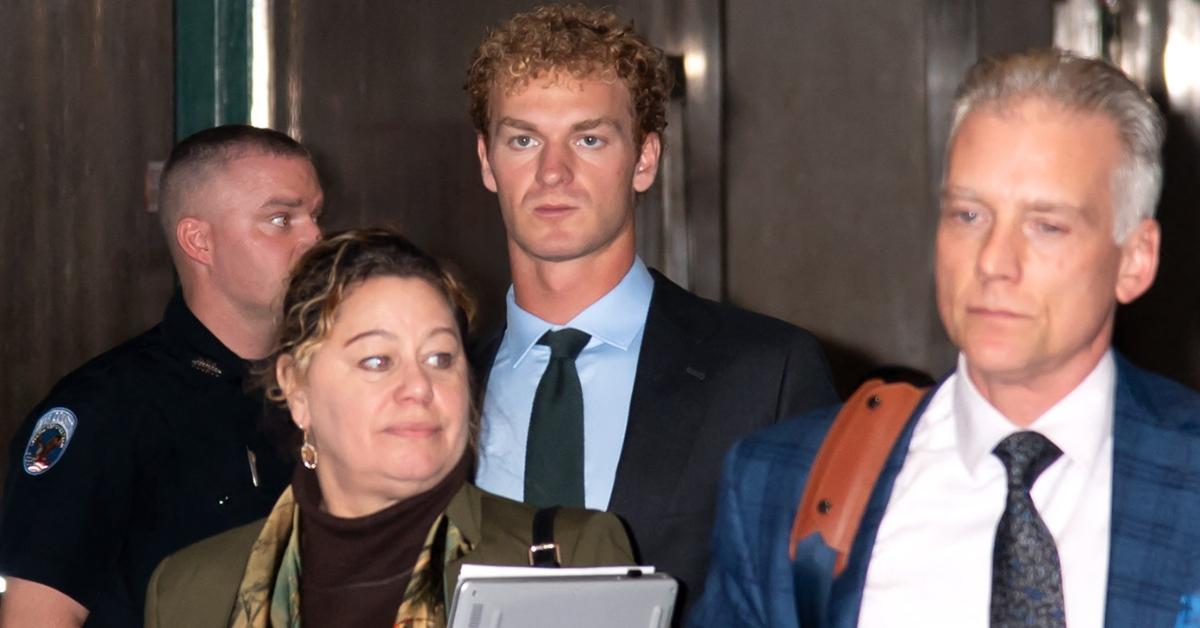Daniel Penny Says He Never Wanted to Kill Jordan Neely — a New York Jury Will Decide His Fate
"The government is scapegoating the one man who was willing to stand up at the moment he was needed."
Published Dec. 3 2024, 12:38 p.m. ET

It's strange to think how time can change depending on what you're doing. Obviously, most people have heard the adage, "Time flies when you're having fun," and it's true. Conversely, the clock can really drag when one is participating in an activity they do not find engaging. Occasionally, time becomes the difference between life and death. Such is the case in the trial of Daniel Penny, who stands accused of manslaughter.
On May 1, 2023, a 30-year-old unhoused man with a history of mental illness boarded a subway train that Penny was already on. Witnesses later provided different accounts of how Jordan Neely was behaving, though all agreed he was being erratic and yelled out various threats. At some point, Penny allegedly stepped up behind Neely and put him in a chokehold for more than six minutes. He died on the train. After a seven-week trial, Penny's verdict is about to be decided.

The Daniel Penny verdict comes after an emotional trial.
Penny was an architecture student who hopped on the F train to go to the gym after class. The 26-year-old is also an ex-Marine, whose training was part of the state's case against Penny. Manhattan Assistant District Attorney Dafna Yoran said Penny was "all too aware of what the consequences could be," per The New York Times. She added, "He was trained in this,” meaning the chokehold, "and yet he continued with the foreseeable and tragic results."
Dr. Cynthia Harris performed the autopsy on Neely, and she concluded he died from compression of the neck. During testimony, Dr. Harris said there was a "considerable amount of force that was applied to the neck in this area causing bleeding." A recorded interview done with Penny immediately following the incident showed the young man explaining that he "just wanted to keep him from getting to people." That was the defense his attorneys used.
Due to his military background, Penny's lawyers framed his actions as heroic and said he was protecting the other passengers. "The government is scapegoating the one man who was willing to stand up at the moment he was needed," said his lawyer Steven Raiser. Regarding Neely's cause of death, Raiser had another theory. He claims the unhoused man's passing was due to "schizophrenia, synthetic marijuana use, and sickle cell trait."
Penny's lawyer said his client did not squeeze Neely to death. Rather, "He was dying because he was being deprived of oxygen internally due to his medical condition." Dr. Harris later testified that his theory was "so improbable that it stands shoulder-to-shoulder with impossibility." So, what's next for Penny?
Sentencing for Daniel Penny could go a couple of ways.
If the jury finds Penny guilty of second-degree manslaughter, he faces a maximum of 15 years in prison which means he would be 41 years old upon release. He could also be convicted of criminally negligent homicide, reports Fox 5 NY, which could land him behind bars for four years. Penny cannot be convicted of both charges and according to the district attorney, there are no mandatory prison sentences in this case.
This is a story that has divided an entire city, with some believing Neely was a danger to those around him while others say this is an example of systemic failure. Penny maintains he had no intention of killing Neely. The unhoused man's family wants to see justice served. It's now up to a jury to decide.